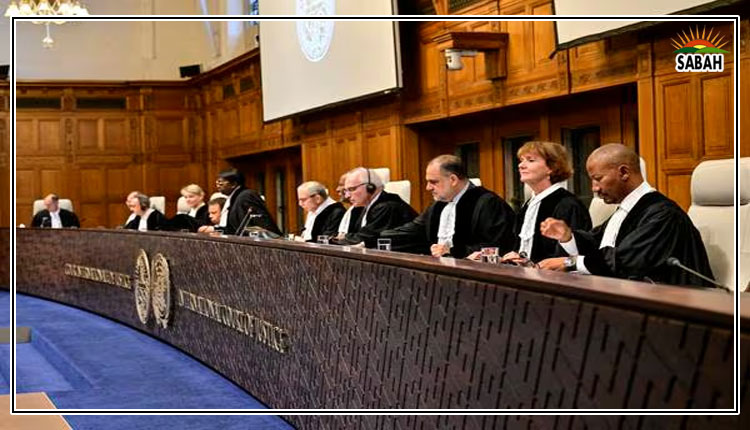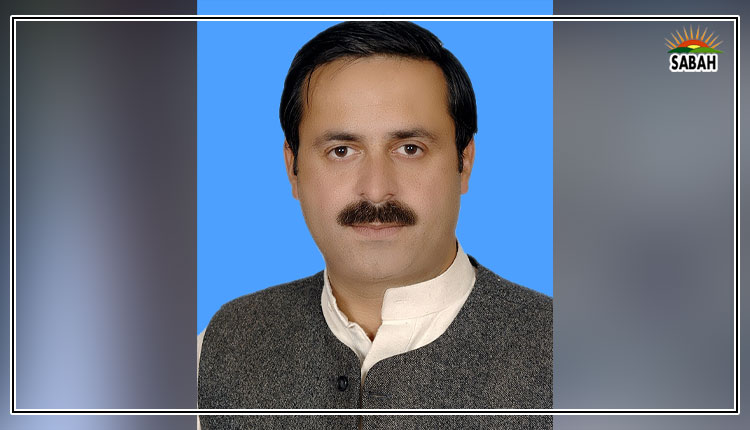Blue carbon ecosystems are nature’s frontline climate defenders: Junaid Anwar Chaudhry
ISLAMABAD, April 13 (SABAH): Federal Minister for Maritime Affairs, Muhammad Junaid Anwar Chaudhry has emphasized the pivotal role of blue carbon ecosystems in building a climate-resilient and sustainable maritime sector in Pakistan. Addressing the urgent need for ecological preservation, he called for the conservation and restoration of essential marine habitats such as mangroves, seagrasses, and salt marshes.
In a statement on coastal resilience, Junaid Anwar Chaudhry on Sunday highlighted that blue carbon ecosystems act not only as powerful carbon sinks but also as natural defenses against rising sea levels, coastal erosion, and extreme weather events. “Blue carbon ecosystems are nature’s frontline climate defenders,” the minister stated. “They capture carbon, protect coastlines, sustain marine biodiversity, and support the livelihoods of coastal communities. They are central to Pakistan’s climate strategy and our vision for maritime sustainability.” Blue carbon refers to the carbon captured and stored by marine ecosystems. These ecosystems, particularly mangroves and seagrasses, sequester carbon more efficiently than terrestrial forests and play a key role in climate mitigation.
The federal minister voiced concern over the multiple threats these ecosystems face, including unregulated coastal development, pollution, overfishing, climate change, and unsustainable land use practices. Such pressures degrade vital habitats, reduce their capacity to store carbon, and endanger marine life. He stressed the need for integrated and immediate action to reverse these trends and restore ecological balance. Highlighting the ecological and economic value of Pakistan’s marine resources, the minister pointed to the Indus Delta—a globally significant region that hosts one of the largest mangrove forests in the world. This area is critical for stabilizing coastlines, supporting fisheries, and acting as a buffer against storms. Restoration efforts in Sindh and Balochistan are underway to rehabilitate these ecosystems, while also generating green jobs and revitalizing local economies. “Community involvement is central to our approach,” Minister Junaid Chaudhry explained. “We are working hand-in-hand with coastal residents and local fishermen to ensure that conservation and economic development go together. This model not only empowers communities but ensures long-term sustainability.” He cited the mangrove restoration program in Keti Bandar as a successful example. This initiative has delivered measurable benefits including reduced erosion, enhanced fish stocks, and increased resilience against storm surges. These outcomes demonstrate how environmental protection can also improve local livelihoods. Reaffirming Pakistan’s broader commitment to maritime sustainability, the minister stated, “We are steering toward a robust blue economy—one that merges ecological responsibility with economic advancement.” He noted that sustainable marine development requires both strategic vision and innovative financial tools.
One such tool is carbon credit financing. Minister Junaid Chaudhry highlighted the achievements of the Sindh Forest Department’s Delta Blue Carbon (DBC-1) project, which has generated approximately $40 million in revenue from carbon credit sales. Covering 350,000 hectares in the Indus Delta, DBC-1 is projected to sequester 142 million tonnes of CO? over the next 60 years. “In addition to its environmental benefits, the project has created nearly 21,000 jobs through mangrove planting and local community engagement. It has also improved essential infrastructure, including Reverse Osmosis plants, providing clean water access to approximately 49,000 people”, he stated. He said Pakistan is also leveraging global partnerships and funding mechanisms to scale its blue carbon initiatives. The country is utilizing instruments such as Green and Blue Bonds and aligning efforts with international platforms like the World Bank’s PROBLUE trust fund. This fund supports sustainable fisheries, marine pollution reduction, and the development of ocean-based economies, with a mandate extended until 2030.
The minister emphasized that Pakistan’s maritime sector must align with global climate objectives to ensure long-term environmental and economic sustainability. He called for collaborative action across public and private sectors, as well as integration of green technologies in ports, fisheries, and coastal infrastructure. “By safeguarding our marine ecosystems today, we are securing our future,” he affirmed. “A thriving blue economy and a healthy ocean go hand in hand—and Pakistan is committed to achieving both.”












